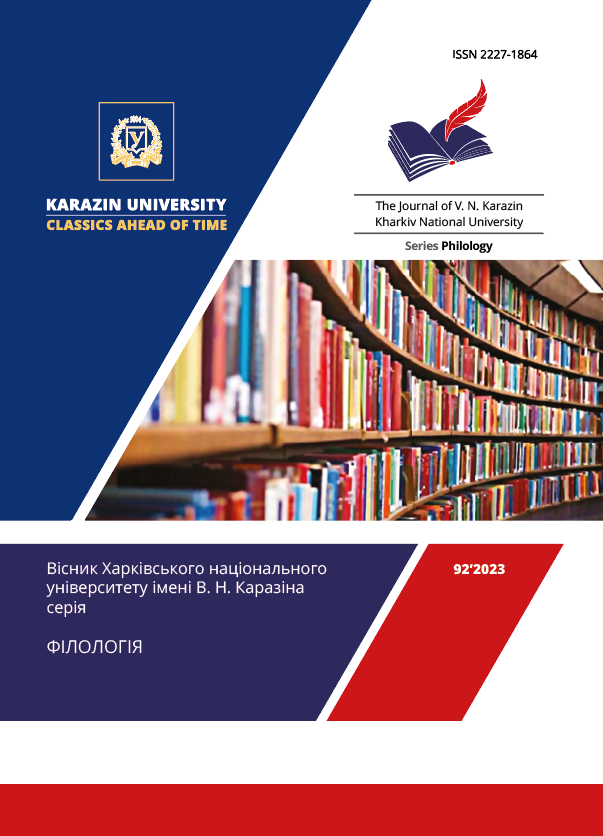The US migratory novel: toward the ideology of genre
Abstract
This article focuses on the US migratory novel and the reasons it has been overlooked in literary scholarship. It is emphasized that the study of migration experience is important as it represents the worldview of historical subjects who, although they contributed a lot to the building of the New World, always existed on the margins of both real life and fiction. Literary scholars concentrated on the fictional images of colonizers, builders of a new world order, pioneers, farmers, cowboys, but not immigrants as such, although all these identities of American history were rooted in the migration experience, whether of their own or of their parents or grandparents. The aim of this article is to draw attention to the genre of the American migratory novel, which is underrepresented in literary criticism, and to identify the connection between migration literary discourse and the ideological regimes of specific historical periods. Nevertheless, migratory fiction serves as a powerful tool for negotiating narrow group representations within the larger receiving community. By depicting the experiences, challenges, and aspirations of migrants, it offers a platform to explore the complexities of cultural identity, displacement, and assimilation. Migratory fiction challenges the dominant narratives and stereotypes imposed upon migrant communities, seeking to humanize their stories and promote empathy and understanding among the receiving community. These narratives navigate the fine balance between preserving the unique cultural heritage of migrants and engaging with the broader context of their new surroundings. They challenge existing notions of national identity, fostering a more inclusive and diverse understanding of what it means to be American. A perspective for further research is the analysis of migration experience in literary writings and its correlation with developments in other fields of humanities. As migratory fiction expands our horizons, encouraging us to embrace and celebrate the multifaceted nature of diversity in all its forms.
Downloads
References
Mykhed, T. (2007). Mif pro Edem u prostori amerykanskoi romantychnoi literatury. Slovo i chas. # 3. P. 69 – 78.
Shymchyshyn, M. (2015). Modernizm, natyvizm i tvorennia amerykanskoi identychnosti pochatku 20 stolittia. Naukovyi visnyk MDU imeni V. O. Sukhomlynskoho. Filolohichni nauky (literaturoznavstvo). Vol. 15. P. 244 – 250.
Boelhower, W. (1981). The Immigrant Novel as Genre. MELUS, 8(1), 3-13.
Di Cesare, D. (2020). Resident foreigners: A Philosophy of migration. Polity.
Gray, R. (2012). A History of American Literature. Wiley-Blackwell.
Mardorossian, C. M. (2002). From literature of exile to migrant literature. Modern Language Studies, 32(2), 15-33. https://doi.org/10.2307/3252040
Mountjoy, Sh. (2009). Manifest destiny: Westward expansion. Infobase Publishing.
O’Donnell, P. (2010). The American novel now: Contemporary American fiction since 1980. Wiley-Blackwell.
Piep, K. H. (2004). Separatist nationalism in Gilbert Imlay's The Emigrants. CLCWeb: Comparative Literature and Culture, 6(4). https://doi.org/10.7771/1481-4374.1247. URL:
https://www.academia.edu/533609/Separatist_Nationalism_in_Gilbert_Imlays_The_Emigrants
Stoddard, L. (1927). Re-forging America: The Story of our nationhood. London: Charles Scribner’s Sons.
Winthrop J. A Modell of Christian Charity. 1630. URL: https://history.hanover.edu/texts/winthmod.html
Yezierska, A. (1923). America and I. URL: https://www.commonlit.org/en/texts/america-and-i




